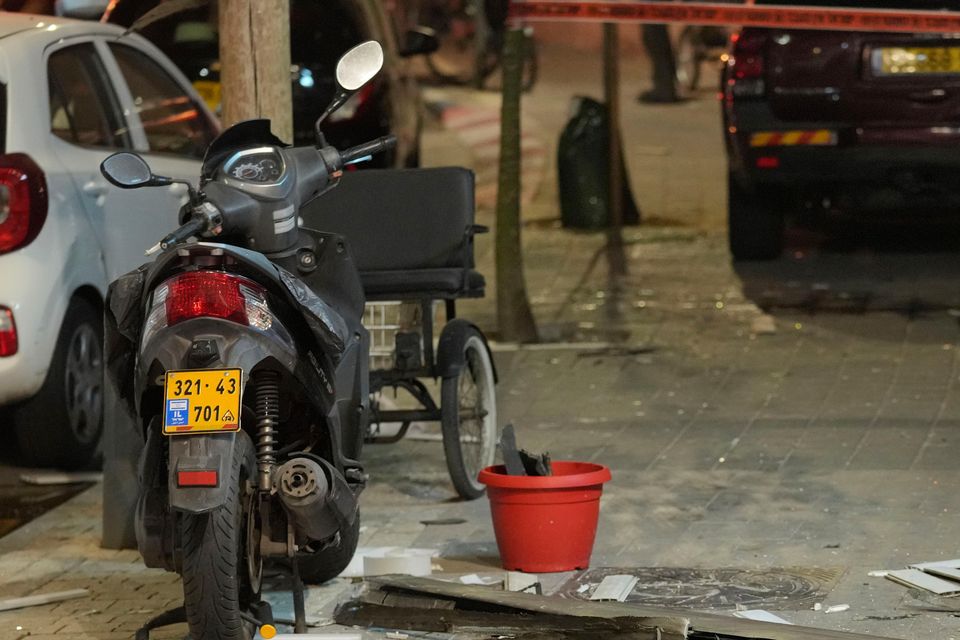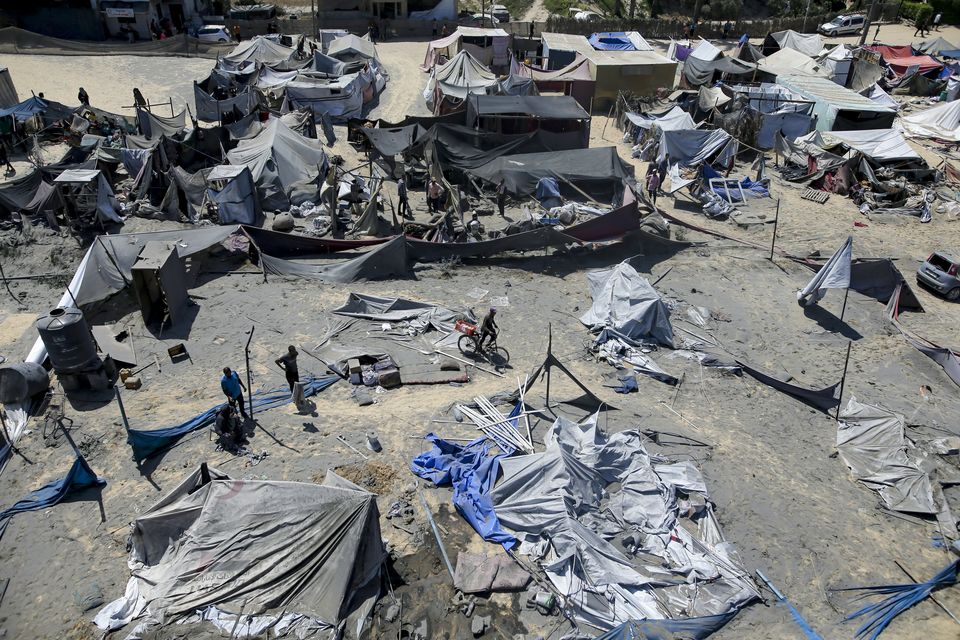A large explosion tore through the streets of central Tel Aviv early on Friday morning, raining down shards of shrapnel and injuring at least 10 people.
Yemen’s Houthi rebels have claimed responsibility for the drone strike.
Israel’s emergency response service said those injured were being treated for their injuries, while a 50-year-old man was pronounced dead at the scene.
Local police in Tel Aviv said that the blast sounded at around 3:10 a.m. on Friday, reverberating to nearby cities and physically injuring at least 10 people.
Caution tape surrounds debris at the scene (Erik Marmor/AP)
Tel Aviv District Commander Peretz Amar said officers could not locate the point of contact, suggesting the explosion occurred in the air.
“The force of the explosion caused damage that is not great but is spread over a large area. At the moment we don’t know what the object was,” Mr Amar said.
Israel’s military said they were reviewing the explosion and increasing air patrols after the incident which Tel Aviv Mayor Ron Huldai on X called a drone strike.
It was not immediately clear how the strike evaded Israel’s air defences or how Israel might respond, but the strike did hit hours after Israel’s military confirmed an airstrikes had killed a Hezbollah commander and other militants in southern Lebanon.
Yemen’s Houthis have repeatedly launched drones and missiles toward Israel throughout the nine-month-long war in sympathy with Hamas.
Until Friday, all were intercepted by either Israel or Western allies with forces stationed in the region.
The country has so far not made attacks on the Houthis, allowing its allies instead to take the lead as it focuses its efforts on the war in Gaza and ongoing fighting with Lebanon’s Hezbollah militant group.
The attack on Tel Aviv comes as international mediators continue to hold out hope for a ceasefire agreement, pushing Israel and Hamas toward a phased deal that would halt fighting and free about 120 hostages held by the militant group in Gaza.
Like Hamas, Hezbollah and the Houthis are backed by Israel’s arch enemy, Iran. Israel for the most part also has avoided a direct confrontation with Iran throughout the war.
Palestinians inspect the damage at a site after an Israeli bombardment on Khan Younis (Jehad Alshrafi/AP)
Iran launched hundreds of drones and missiles at Israel during a single incident in April in response to Israel’s alleged assassination of a pair of Iranian generals in Syria at the time.
The war in Gaza, which was sparked by Hamas’ October 7 attack on southern Israel, has killed more than 38,600 people, according to the territory’s Health Ministry.
The war has created a humanitarian catastrophe in the coastal Palestinian territory, displaced most of its 2.3 million population and triggered widespread hunger.
Hamas’ October attack killed 1,200 people, mostly civilians, and militants took about 250 hostage. About 120 remain in captivity, with about a third of them believed to be dead, according to Israeli authorities.

